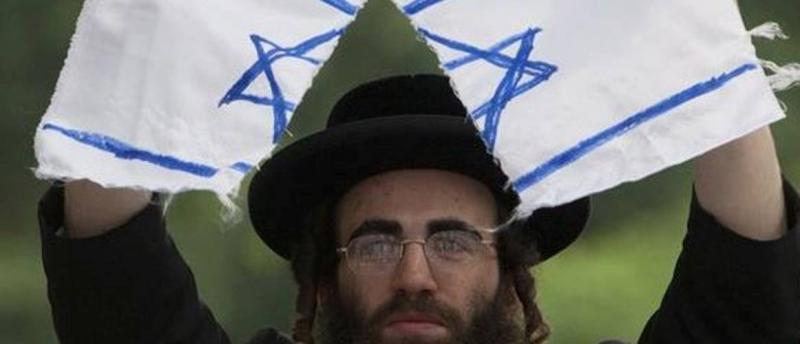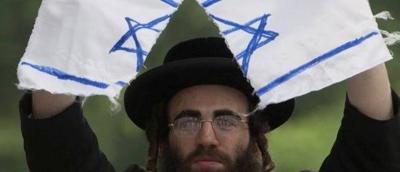During protests denouncing the Israeli aggression against Gaza, a Jewish group called "Neturei Karta" emerged. This Haredi movement was established in 1935, opposes Zionism, advocates for the dismantling or peaceful end of the Israeli occupation, and calls for the return of the land to the Palestinians. The group has around 5,000 members located in Jerusalem, London, and New York.
#### What is the "Neturei Karta" Movement?
Neturei Karta, which means "Guardians of the City" in Aramaic, is a religious Jewish movement opposed to Zionism. It does not recognize the state of Israel in the occupied Palestinian territories, believing that the establishment of a state for Jews cannot be achieved through the dispossession of another people and can only occur with divine permission, which requires Jews to return to adhering to their religious law, as they were punished by God for abandoning it.
Neturei Karta was once part of the Agudat Yisrael party, created in the early 20th century to oppose Zionism. However, after 1917, following the British government's Balfour Declaration and the announcement of the British Mandate in Palestine, the party initially supported Jewish immigration from Europe to Palestine but rejected the establishment of a Jewish state.
#### Beliefs
Followers of this movement focus on rabbinic literature, which states that due to the sins of the Jews, they were expelled from the land of Israel. They also believe, based on the Babylonian Talmud, that any attempt to reclaim the land of Israel by force is contrary to divine will. They believe the establishment of an "Israeli state" will only occur when the Messiah comes. Rabbi Moshe Hirsch acknowledged that Palestinian President Yasser Arafat is the legitimate and legal leader of the State of Palestine, encompassing what is referred to as the "State" of Israel.
#### History
The slogan "No to the State of Israel" is often used by Neturei Karta members. Most followers of this sect descend from Hungarian origins who settled in the Old City of Jerusalem in the early 19th century, as well as from Lithuanian Jews who were students there.




